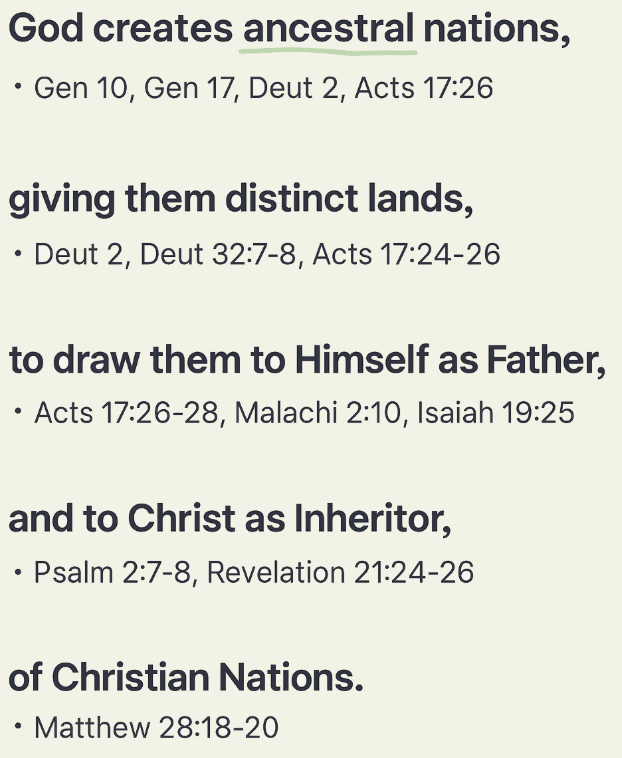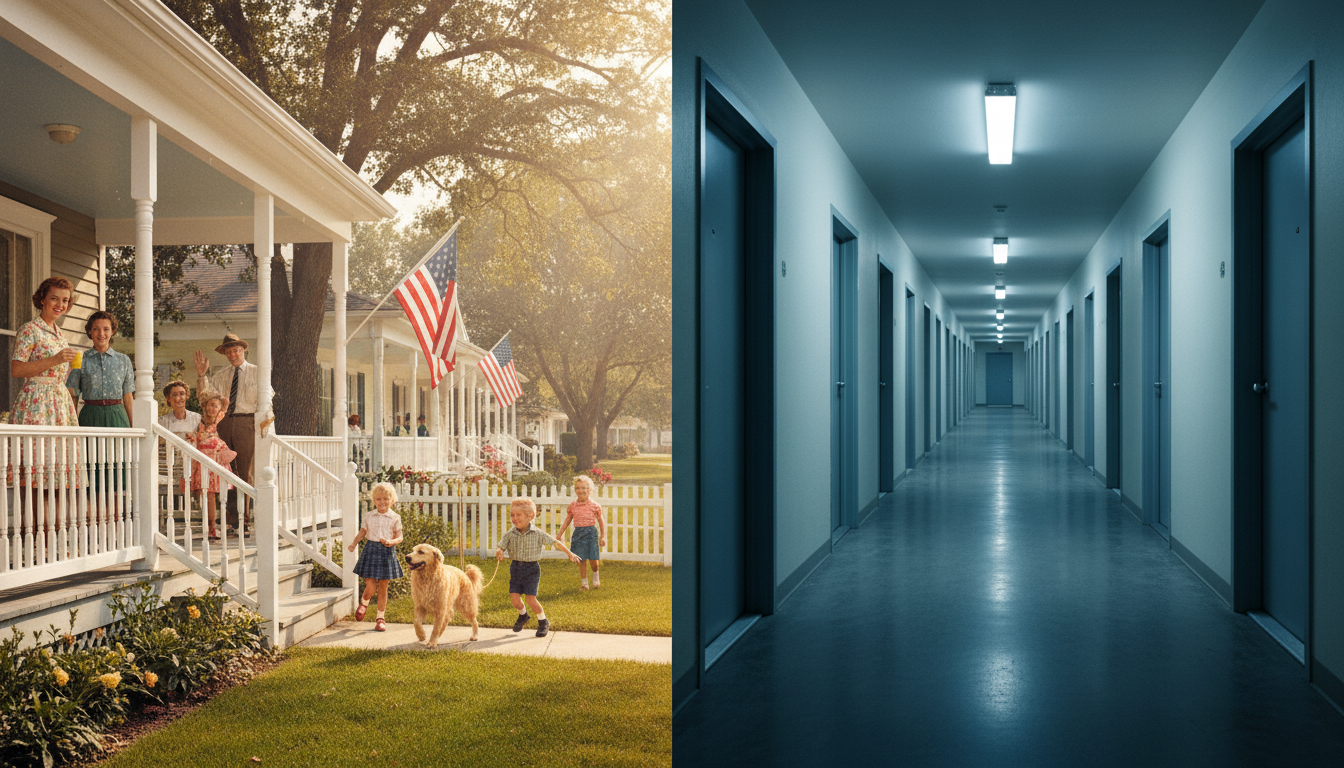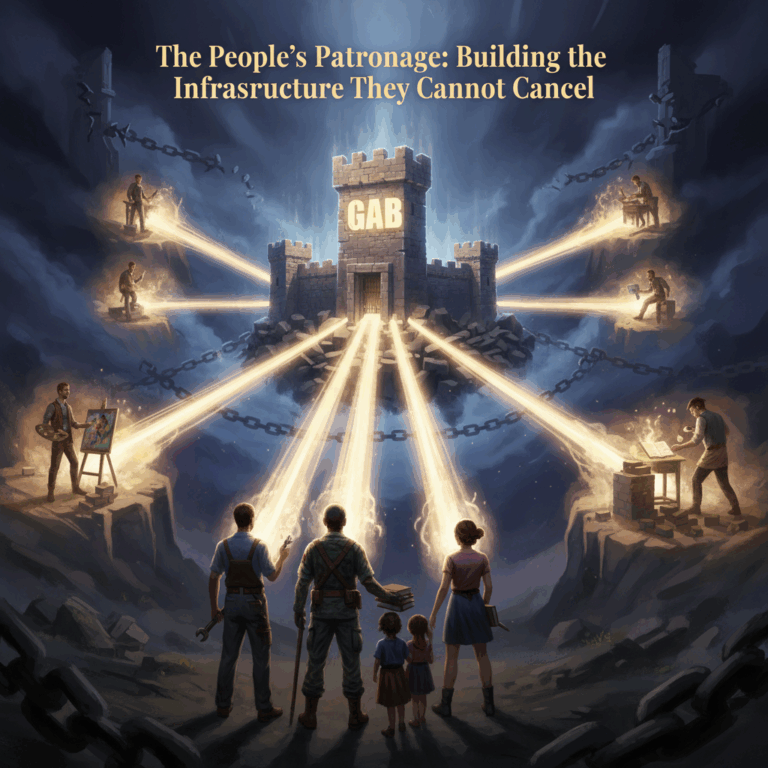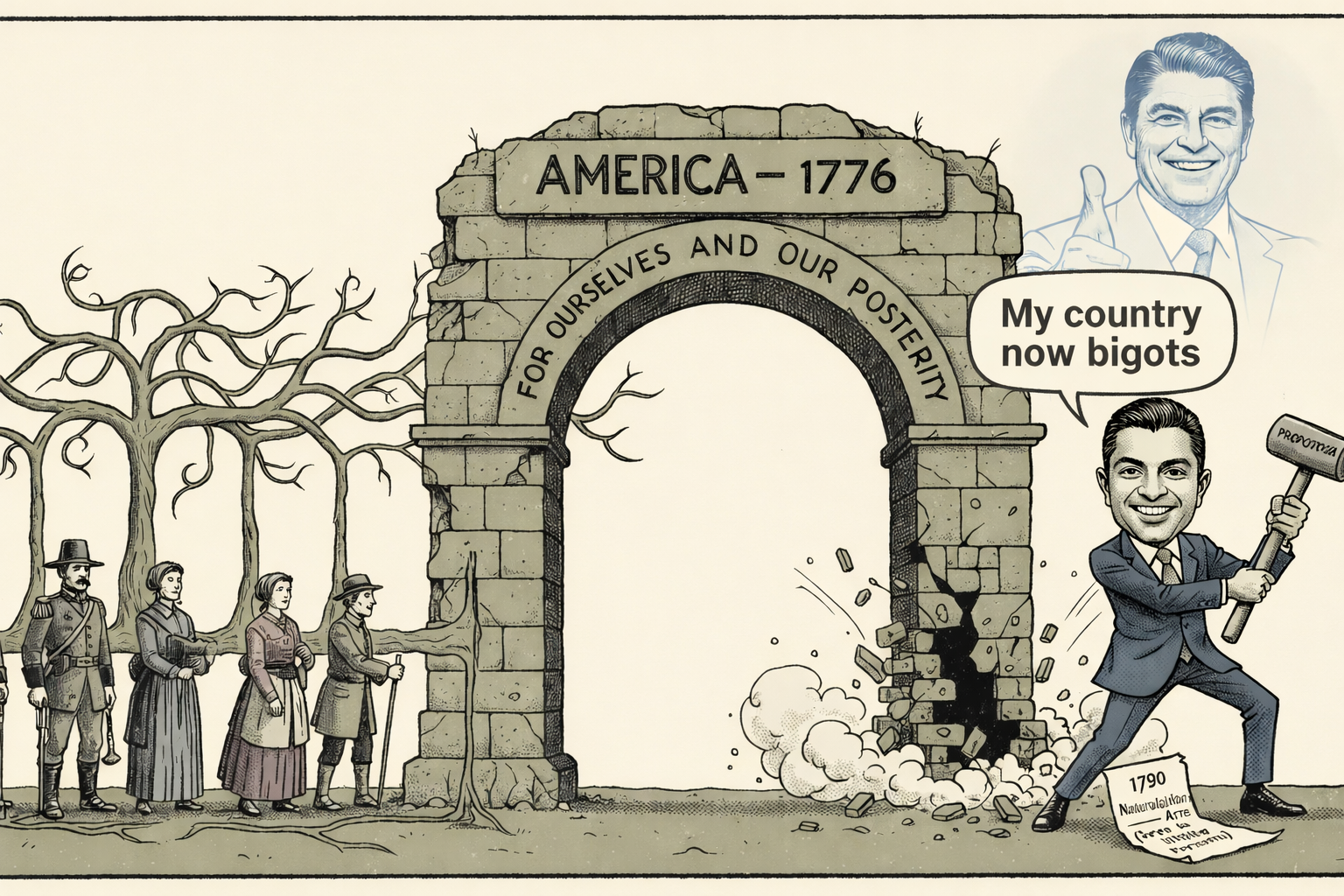We hear the word constantly. It’s plastered on corporate websites, preached from pulpits, and used as a cudgel by politicians. “We need to build community.” “We must come together as a community.” “Our diverse community is our strength.”
It sounds warm. It sounds noble. But what does it even mean?
For most of human history, the concept of “community” was not an abstract ideal to be achieved. It was a concrete reality, born not of shared values, but of shared blood. A community was your extended family, your clan, your tribe. In other words: people bound by a common ancestry, a common history, and a common destiny. They looked like you, worshipped like you, and shared the same unspoken understandings that can only be forged over generations. This was the organic foundation of every healthy nation on earth.
Today that word has been hollowed out and weaponized. The new definition of “community” is a managerial term used to describe a collection of individuals who happen to live in proximity, held together by little more than a ZIP code and a set of state-enforced rules. This is a hotel, not a home.
That lingering sense of disconnect so many of us feel isn’t a personal failing. It’s not because we’re all suddenly ruder, lazier, or more addicted to our screens. These are merely symptoms of a deeper, deliberate dismantling. The fabric of community hasn’t just frayed over time; it has been systematically unraveled.
For millennia the pillars of natural community were obvious: the church, the extended family, and the local township comprised of people who shared a common heritage, language, and destiny. These institutions provided a web of mutual obligation, support, and identity. You knew the family history of the man who ran the hardware store. The women at the playground knew your children and looked out for them. Your neighbors were not just people who lived in proximity; they were family, bound by a shared past and a common future.
The most significant barrier to knowing your neighbor in modernity is not the physical walls between your buildings. It is the immense cultural, linguistic, and racial chasm that often exists between you. God designed man for fellowship with his own: those who share his language, his customs, his unspoken understandings, and his faith. This is the fertile soil where trust and community naturally grow.
The modern urban and suburban landscape has been deliberately demolished and turned into a demographic atom bomb. You are surrounded by people with whom you share nothing in common. You do not share a common history, a common faith, common ancestors, common holidays, or a common understanding of basic social norms.

Attempting to force fellowship in this context is like trying to plant an oak tree in a pot of barren sand. There is no foundation for the deep roots of trust and mutual obligation to take hold. The constant, low-grade stress of navigating a dozen different cultural expectations is exhausting. It is far easier, and safer, to retreat behind your own door and interact with no one. This is the rational response to an unnatural and hostile social environment.
The modern, secular gospel of “tolerance and diversity” is a direct rebellion against this divine order. It seeks to tear down the boundaries God Himself established. It replaces the God-ordained bonds of kinship, blood, and shared faith with a hollow, state-managed multiculturalism. This is not building community, it is building Babel. It is the same spirit of rebellion, now dressed in the language of tolerance and inclusion.
This false gospel serves the Enemy’s purpose perfectly. It breaks down the natural, organic families and nations that are the primary building blocks of Christ’s kingdom on earth. A strong, unified people, steeped in their God-given heritage and the faith of their fathers, is a bulwark against globalist control and spiritual decay. By convincing Christians that defending this unity is “uncharitable” or “racist,” the powers of this world successfully dismantle our God-given defenses. They reframe the Great Replacement—the demographic and cultural dispossession of Christian civilizations— as a virtuous act.
Christ-honoring community is not built; it is fostered within the natural families and nations God has given us. It is the “communion of saints” within the broader context of a people. It is the church where men lead as protectors and providers, women nurture as the heart of the home, and children are raised in the admonition of the Lord. This is of course a vision that is utterly at odds with the sterile, egalitarian, anti-natalist ideal of the modern world.

Our entire social order has been systematically targeted for destruction and replaced by a cold, impersonal, and managerial state. The first and most critical blow was landed against the foundational unit of all society: the strong, multi-generational family. The economic push for dual incomes, the normalization of divorce, the cult of hyper-individualism, and the demographic winter encouraged by feminist anti-natalism have all conspired to isolate individuals and break ancestral bonds. When the family is weak, people become lonely, vulnerable, and utterly dependent on external systems for support. A state that seeks total control has no use for strong, independent families that can care for their own, provide for their elderly, and discipline their children without outside intervention.
At the same time too many modern churches have tragically abandoned their role as the spiritual center of a people. Instead of reinforcing the sacred bonds of shared faith and culture, they have devolved into purveyors of a bland, universalist “spirituality” that often parrots globalist slogans about diversity and inclusion. They preach this from the pulpit, effectively weakening the unique, particular identity of their own congregation and severing the connection between faith and folk. When the church stops being a bulwark of distinct, grounded truth and becomes a satellite office for Regime-approved messaging, it loses all its God-given power to create and sustain real community.

The final stage of this demolition is the engineered transformation of our towns and neighborhoods. They are no longer allowed to be organic extensions of a people. Through policies of mass immigration and demographic replacement our communities have been intentionally fractured and rendered alien to themselves. It’s a travesty to drive through our hometowns and feel like outsiders in another country than the place we grew up, but this is by design.
It is a simple, biological and social truth that it is impossible to build the deep, implicit trust necessary for a functional society when you do not share a common language, a common history, or common customs with the person next door. This engineered transformation creates a populace that is isolated, anxious, suspicious, and ultimately easier to manage from the top down. A divided people, one set against another in a battle for resources and cultural dominance, cannot unite against those who rule them.
As these natural pillars of family, church, and tribe crumbled, what rushed in to fill the vacuum was the impersonal, bureaucratic state. Instead of neighbors organizing to bring meals to a new mother, you get a government program application. Instead of the church deacons caring for its widows and orphans, you get the cold machinery of Social Security and a broken foster care system. Instead of local men keeping the peace and upholding a shared standard of order, you get a militarized police force that often views the citizenry as a potential enemy. The goal is to make you reliant on the system, not on each other, because community creates resilience and independence, while isolation creates perfect dependence and control.
The profound feeling of loneliness, of not even knowing your neighbor’s name, is therefore not a mystery. It is the sign of a successful social experiment in alienation. The solution is to stop lamenting this loss as if it were a natural occurrence and to begin actively rejecting the very systems that caused it. We must consciously and courageously rebuild the pillars that they tore down: strengthen your family, have children and raise them in truth, find a church that preaches the Gospel without apology and fosters a real flock, and intentionally seek out community with those who share your faith and your heritage. This is the path away from isolation and back to belonging. It is the only way to be truly free.
The call for Christians is not to embrace a rootless, generic “community.” It is to be a holy people within our nations. It is to strengthen our families, have many children, disciple them in the faith, and create strong, localized cultures that reflect God’s glory and His created order. We must reject the satanic lie that to be a good Christian, we must agree to our own dissolution.
Our model is not the blended, borderless world of modernity. Our model is Pentecost: every nation hearing the gospel in their own tongue, each retaining their God-appointed distinctiveness, yet all united in confessing that Jesus Christ is Lord in their own communities.
Andrew Torba
CEO, Gab AI Inc
Christ is King





